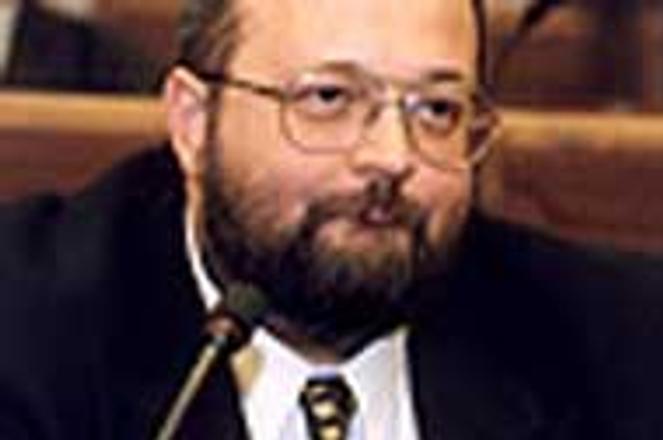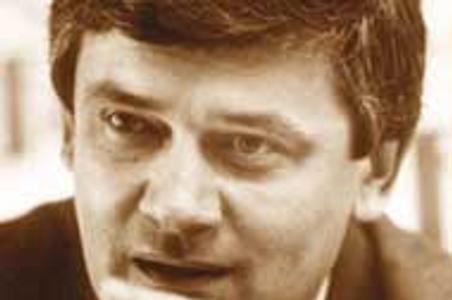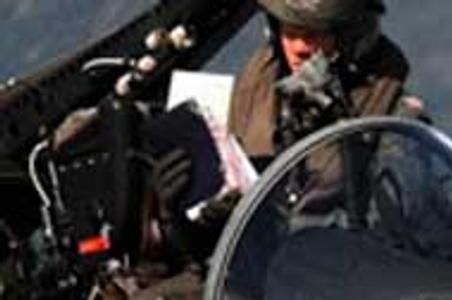Archive of articles - March 1999, page 4
If you desire to read an old article, use the search bar or select the publication date.
Immunity issue sparks constitutional debate
Constitutional reform is once again on the lips of Slovak politicians. After parliament took four long days in February to strip former Interior Minister Gustáv Krajči of his immunity from prosecution for marring a 1997 NATO referendum, representatives from almost every party were left muttering about the shortcomings of the country's most important legal document.Krajči's case, which will soon be followed by at least two other immunity debates, has launched a discussion in parliament over whether the constitution should be modified to remove the immunity clause. Some MP's have charged that the clause puts politicians above the law, and say further that given the number of legal flaws that have been identified in the constitution since its drafting in 1992, the time is ripe for wide-ranging reform.
Net access planned for every school
Worries that Slovakia may become a cheap source of unskilled labour for high-tech western firms has led to the launch of an ambitious programme to equip future workers with computer-age skills.Project Infovek, as the initiative is known, has set itself the goal of educating and preparing forthcoming generations for the Information Age by delivering Internet access to every school in Slovakia within 10 years - approximately the time the group predicts Slovakia will become a full member of the EU. "Full-scale internetisation," an Infovek press release reads, can be achieved if the project gains state support, foreign investment and grants from the EU's PHARE programme.
Ministry bares teeth in defence of ST monopoly
Two recent challenges to the monopoly position enjoyed by state telecom firm Slovenské Telekomunikácie (ST) have been slapped down by the Ministry of Telecommunications. Despite shrill objections from some of the challengers, telecom analysts have praised the ministry's bulldog tactics as protecting the value of one of the nation's most precious remaining state properties.According to a 1997 government document on the liberalisation of telecom infrastructure and services, ST has a legal monopoly on all basic voice telephony services in the country which is guaranteed until the end of the year 2002. The monopoly promises to keep ST an interesting target for foreign investors while the government prepares to sell off a chunk of ST shares by the summer.
Why is Slovakia not in NATO?Ján Slota explains
March 5: Ján Slota, leader of the far-right Slovak National Party (SNS), makes a drunken speech in which he threatens to advance on Budapest in tanks and flatten the city. "We will fight," he cries, "for every square metre of our land."March 12: Hungary, Poland and the Czech Republic join NATO. Slovakia does not.March 14: Slovakia celebrates the 60th anniversary of the World War II Slovak state, a Nazi puppet regime hailed by Slota's party as a source of national pride.Ján Slota is not the first Slovak politician to embarrass his country, nor will he be the last. But in his own bombastic, bigoted way, he offers an outstanding explanation of why Slovakia was not asked to join NATO along with its neighbours.
Teachers flee school sector
As an assistant lecturer at the Faculty of Education at Comenius University in Bratislava, 26-year-old Radoslav Pavlík takes home 7,030 Slovak crowns ($176) per month, not nearly enough to support himself, his wife and his six-month old son. To make ends meet, Pavlík has taken two other teaching jobs, one in the city of Lučenec, about 200 km away. When that doesn't close his budget gap, he does translation work.His experience is the rule rather than the exception in the Slovak university system. Talented young teachers are fleeing the profession, which pays less than every other field in the Slovak economy except agriculture and social services. While foreign investors in Slovakia still praise the nation's highly educated work force as one of the primary benefits of setting up shop here, many in the education field say that distinction is increasingly at risk.
Electorate displays growing maturity in censure of MPs' barbaric behaviour
In the past month, one Slovak parliamentarian has punched a colleague, another has been involved in a drunken scuffle with police after crashing his car into a taxi, and still another has proposed that Slovak tanks flatten Budapest. Although the Slovak government has boasted a new, westward orientation since its formation last November, the political culture of parliamentary deputies seems to be at low tide.Viewed from another angle, however, the public response to such oafish behaviour shows that the electorate has begun to mature. Political scientist Luboš Kubín, for example, argues that the media outcry and public disgust over boorish MP's is a good sign, in that voters no longer seem willing to accept what they tolerated in the not-so-recent past. Far from harming Slovakia, Kubín said, the recent outbursts may in the end indirectly improve the country's image abroad.
Vášáryová asks voters to ignore her diva past
After Vaclav Havel, she has been one of the most recognised faces in the former Czechoslovakia, and after Wonderbra supermodels Eva Herzigová and Adriana Sklenáriková, she has maybe the best known body. Now, like her close friend, the former dissident playwright Havel, she wants to be president.But Magda Vášáryová - who has starred in some of the most popular films to come out of Prague since the Czech New Wave of the 1960s - wants to put her screen life aside and talk about her more serious credentials to lead her native Slovakia."I pushed away my acting career 10 years ago. It's history, one part of my life, a very successful history, but it's over," Vášáryová, now 50, told Reuters in an interview during a visit to Prague to promote her latest book on social behaviour.
Railway workers threaten to strike over wages
Trade unions at the country's largest employer - state-owned Slovak Railways (ŽSR) - finally had enough of dragging wage talks and declared a strike alert on March 9.The industrial action is set to last until March 29, the deadline which ŽSR management has been given to reach an agreement with the trade unions under their collective agreement."We have created space for further negotiations, but if we do not get an agreement with management, we'll strike," said Peter Rozložník, vice-chairman of the Union Association of Railway Workers.
Czech maker of Becherovka sues Slovak rival
The Czech company Jan Becher-Karlovarská Becherovka, the producer of the famous Becherovka liqueur, has filled charges against Simpex Plus Chotín, a Slovak producer of the same liqueur. The Czech company accuses Simplex Plus of violating trademark rights and unfair business practices, said David Binar, the company's spokesman.Binar said on March 7 that a regional court in Slovakia should hear the case by the end of the week and deal with a request to issue a preliminary injunction banning the production and sale of the Slovak liqueur under the famous Becher trademark.
A brief guide to the Slovak air industry
Following the 1993 split of the former Czechoslovakia, the Slovak air transport industry swelled at one point to fifty different airlines. In the last few months, however, the country has seen this sector cut back to two regional carriers - Air Slovakia and Air Transport Europe.Knockout blows have recently been sustained by the the two former national carriers, Slovenské Aerolínie and Tatra Air - the former for murky operations and flying without a license and the latter for failing to pay a six year-old tax bill.
State foils Mig 21 bargain hunters
A little known company in the industrial eastern Slovak city of Košice came within inches of a business windfall - buying 35 older Mig 21 Russian fighter jets from the Slovak army for a mere 52,000 crowns ($1,300) each.But the company's plans were foiled when the private TV Markíza reported on March 3 that at least two of the 'obsolete' bargain planes were still operable. Stung by the storm of public criticism which erupted, the Defence Ministry announced on March 9 that the sales would be investigated and that until a verdict was delivered, Perun could not take possession of or use the jets.Contacted by The Slovak Spectator on March 10, Perun co-owner Imrich Jurčák said that "we have to wait for the government's decision - until then there's nothing we can do."
Jozef Majský: Gave government "fundamental" help
Jozef Majský is a rich man. Sole owner of Sipox Holding, Slovakia's seventh largest company with 1997 net revenues of 16.240 billion Slovak crowns ($406 million), Majský has interests in businesses as diverse as media and trucks.In early March, Majský made headlines once again by announcing the purchase of a 46% stake in the gas storage company Nafta Gbely. The Nafta stake was sold in 1996 by the FNM state privatisation agency for 500 million crowns, approximately one seventh of its market value at the time. Although the government had already announced its interest in having the Nafta sale declared invalid by the courts, Majský quietly bought the shares from owner Vladimír Poór for about 400 million crowns.
- Slovak female triathlete shatters barriers with historic win at Himalayan event
- Convicted of multiple murders, Slovakia’s mafia boss seeks release from prison
- Slovakia loses another EV model to Spain as Stellantis chooses Zaragoza over Trnava
- Top 10 events in Bratislava for foreigners
- News digest: Prosecutor seeks jail for NBS Governor Kažimír as his political support wanes
- No more photos or bank statements? Slovakia moves to ease residence process
- Weekend: Celebration of fun comes to Malacky Photo
- News digest: Fico’s bloc wants to save money by restricting electoral access
- Weekend: Celebration of fun comes to Malacky Photo
- Top 10 events in Bratislava for foreigners
- No more photos or bank statements? Slovakia moves to ease residence process
- Slovakia loses another EV model to Spain as Stellantis chooses Zaragoza over Trnava
- News digest: Prosecutor seeks jail for NBS Governor Kažimír as his political support wanes
- Convicted of multiple murders, Slovakia’s mafia boss seeks release from prison
- News digest: Fico’s bloc wants to save money by restricting electoral access
- Slovak female triathlete shatters barriers with historic win at Himalayan event
- Maria Theresa on the banks of Bratislava
- No more photos or bank statements? Slovakia moves to ease residence process
- 3 free things to do in Bratislava in the next seven days
- Weekend: Celebration of fun comes to Malacky Photo
- Top 10 events in Bratislava for foreigners
- Digital Jarvis is real now. He is coming for your to-do list
- The Kremlin’s security agency has a Russian contractor in Slovakia - no one has noticed
- News digest: Violent gang in Bratislava is under arrest
- Maria Theresa on the banks of Bratislava
- No more photos or bank statements? Slovakia moves to ease residence process
- A mayor resigns over €2.7 million fraud scandal at town hall
- He designed Gatwick. But this is his masterpiece
- Fico praises China and Vietnam as models, says liberal democracy has failed
- News digest: Violent gang in Bratislava is under arrest
- The compass points to Kúty, and people are starting to follow
- The Kremlin’s security agency has a Russian contractor in Slovakia - no one has noticed
- News digest: Prosecutor seeks jail for NBS Governor Kažimír as his political support wanes
- Slovakia loses another EV model to Spain as Stellantis chooses Zaragoza over Trnava
- Slovak female triathlete shatters barriers with historic win at Himalayan event
- Weekend: Celebration of fun comes to Malacky Photo
- News digest: Fico’s bloc wants to save money by restricting electoral access
- Slovakia plans to restrict access to new medicines amid funding shortfall
- No more photos or bank statements? Slovakia moves to ease residence process
- Top 10 events in Bratislava for foreigners More articles ›









